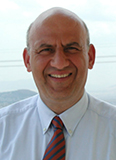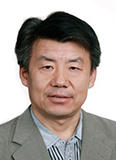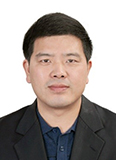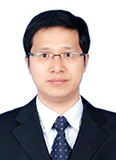
Speakers
Prof. P. Takis Mathiopoulos University of Athens, Greece | Profile: P. Takis Mathiopoulos, Professor of Telecommunications at the Department of Informatics and Telecommunications, National and Kapodistrian University of Athens, Athens, Greece. He also held visiting faculty long term honorary academic appointments as Guest Professor at Southwest Jiao Tong University (SWJTU), Chengdu, China, and Guest (Global) Professor at Keio University, Tokyo, Japan. His research activities and contributions have dealt with wireless terrestrial and satellite communication systems and network as well as in remote sensing, LiDAR systems, and information technology, including blockchain systems. In these areas, he has coauthored some 160 journal papers published mainly in various IEEE journals, 1 book (edited), 5 book chapters, and more than 180 international conference papers. Dr. Mathiopoulos has been or currently serves on the editorial board of several archival journals, including the IET Communications as an Area Editor, the IEEE Transactions on Communications, the Remote Sensing Journal, and as Specialty Chief Editor for the Arial and Space Network Journal of Frontiers. From 2001 to 2014, he has served as a Greek Representative to high-level committees in the European Commission and the European Space Agency. He has been a member of the Technical Program Committees (TPC) for numerous IEEE and other international conferences and has served as TPC Vice Chair of several IEEE conferences. Speech Title: Channel Modeling for Space-Aerial-Terrestrial Integrated Networks (SATIN) |
Prof. Zhimei Qi Aerospace Information Research Institute, Chinese Academy of Sciences, China | Profile: Zhimei-Qi, a researcher (Grade II) at the Institute of Aerospace Information Innovation, China Academy of Sciences, a post professor and doctoral supervisor at the Chinese Academy of Sciences, was once the deputy director of the State Key Laboratory of Sensor Technology. In 2001, he received a doctor's degree in engineering from Yokohama National University, Japan. From March 2001 to March 2007, he worked as a postdoctoral researcher at JST in AIST, Japan. In April 2007, he returned to the Institute of Electronics, Chinese Academy of Sciences to form a team to carry out research on optical waveguide sensing materials, devices and systems, hyperspectral SPR imaging sensing technology, high-sensitivity acousto-optic transducing microphone and its application. He presided over 7 general/key projects of National Natural Science Foundation, 3 key research and development projects of 973, 2 JKW projects and 3 research and development projects of Chinese Academy of Sciences. He has published more than 100 SCI papers in journals such as Nature Communications, won more than 40 invention patents at home and abroad, and trained more than 40 graduate students. In 2018, he was granted special government allowance from the State Council. Speech Title: THz-SPR characteristics and sensing application of InSb grating |
Prof. Zhen Zhang Zhengzhou University, China | Profile: Zhang Zhen, a second-level professor, is a doctoral supervisor at the School of Electrical and Information Engineering of Zhengzhou University, and the vice president of the Institute of Public Safety of Zhengzhou University. He is a high-level talent in Henan Province and the deputy director of the National Engineering Laboratory for Big Data Collaborative Security Technology. He is a returned scholar from a state-sponsored program, a key teacher in Henan Province, and an academic and technical leader of the Henan Provincial Department of Education. He serves as an expert for the Ministry of Public Security's video engineering project, an expert for the Ministry of Industry and Information Technology, the Ministry of Science and Technology, and the Ministry of Education, an expert in the artificial intelligence group of the China Security Association, the vice chairman of the Henan Provincial Machinery and Electrical Standardization Association, an expert in emergency management of Henan Province, an expert in the construction of digital government in Henan Province, an expert in informatization of Henan Province, an expert in artificial intelligence and big data of Henan Province, a chief science popularization expert of Henan Province, an expert in educational informatization of the Henan Provincial Department of Education, and an expert in the construction and networking application of public security video surveillance in Henan Province. He has presided over more than 100 major national and provincial scientific research projects and published 90 papers. As the project leader, he has won the second prize of Henan Province Science and Technology Progress Award, and has twice been awarded the title of "Outstanding Master's Thesis Supervisor of Henan Province", "Supervisor of National Scholarship for Postgraduates", "Innovative Leading Talent of Zhengzhou's '1125 Talent Gathering Plan'", "Outstanding Science and Technology Worker of the Chinese Institute of Electronics", "Outstanding Contributor to China's Smart City", and "Outstanding Contribution Award of China Security Industry". Speech Title: Multiple Adaptiveover-sampling for Imbalanced Data Evidential Classification |
Prof. Zumin Wang Dalian University, China | Profile: Dr. Zumin Wang (wangzumin@dlu.edu.cn) is a professor at Dalian University since 2014. His research interests include Wireless Sensor Networks and Internet of Things, and smart healthcare. He received his Ph.D. degree in Physical Electronics in 2007 from Chinese Academy of Sciences. He is a visiting scholar at University of Washington from November 2016 to November 2017. He is a distinguished member of Chinese Computer Federation, and Doctor Supervisor at De Montfort University, UK. He has hosted more than 20 research projects in recent years, and has published over 100 research papers in related conferences, journals, and books in the area of sensor networks, computer science and smart healthcare. He has obtained more than 20 authorized invention patents in the past years.
Speech Title: Intelligent perception and its application in disease monitoring |



